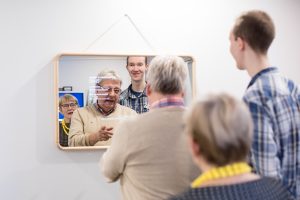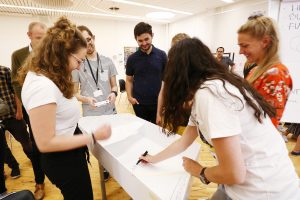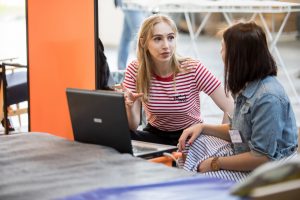Without a doubt the biggest honor for us was that Barbro Westerholm – a member of the Swedish Riksdag (Parliament) with special interest in older persons´ living conditions and quality of life accepted the invitation to be a keynote speaker at our final BaltSe@nioR 2.0 conference. With her inspirational and encouraging words every participant felt that making the public spaces more accessible and age-friendly is one of the top challenges of the public domain and that our project actions can really make the difference.
BaltSe@nioR 2.0 final events were held in Skövde, Sweden on 13-15 December 2021. During the first two days we were testing the prototypes of smart furniture with seniors in Skaraborg Health Technology Center (SHC) at University of Skövde – one of the demo age-friendly spaces developed within the project. Skaraborg Health Technology Center is a full scale demo apartment adapted to the needs of senior citizens combined with the innovation room where the workshops and testing take place. Skaraborg Health Technology Center consist of an innovation room and an highly accessible apartment equipped with a technical infrastructure and technology supporting health and wellbeing. It showcases how the assisted ambient living facilities could be equipped to enhance the independence and safety of seniors. In this apartment we tested a number of smart solutions developed within the BaltSe@nioR 2.0 project.
One of those solutions was a smart chair developed on the basis of the smart cushion. The sensors and function of the smart cushion were implemented in the chair seat and used to play the games earlier developed in BaltSe@nioR on tablets. It is now possible not only to navigate the game but also to register the presence and time the user spends in chair. This data is logged and incorporated in the technical infrastructure and the presence in the chair can be viewed on the interactive screens in the University of Skövde demo space – Skaraborg Health Technology Center (SHC).
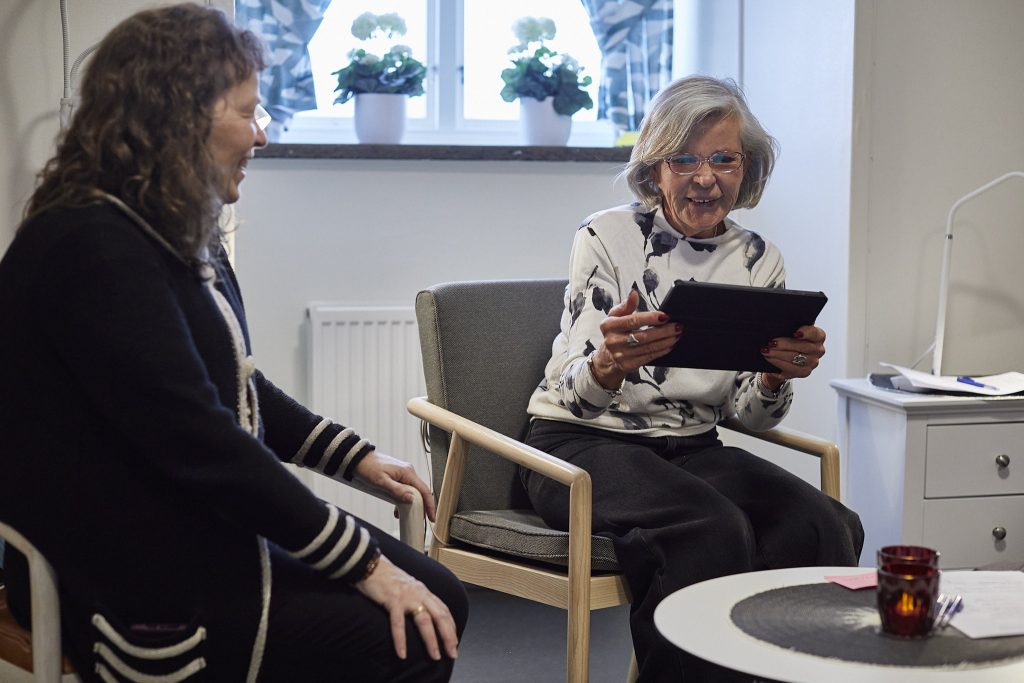
Senior testing a smart chair
Seniors tested also a prototype of VR table, developed by ITMO University. It allows for a closed tactile environment that ensures the user’s safety while using VR devices. A chair that rotates 360° allows the user to comfortably immerse him/herself in any VR environment, and a closed-loop furniture system prevents involuntary movement and offers a surface for hand support throughout the experience — thus minimizing motion sickness. The proposed solution allows seniors to safely and comfortably use VR devices for their medical, education and communication needs.
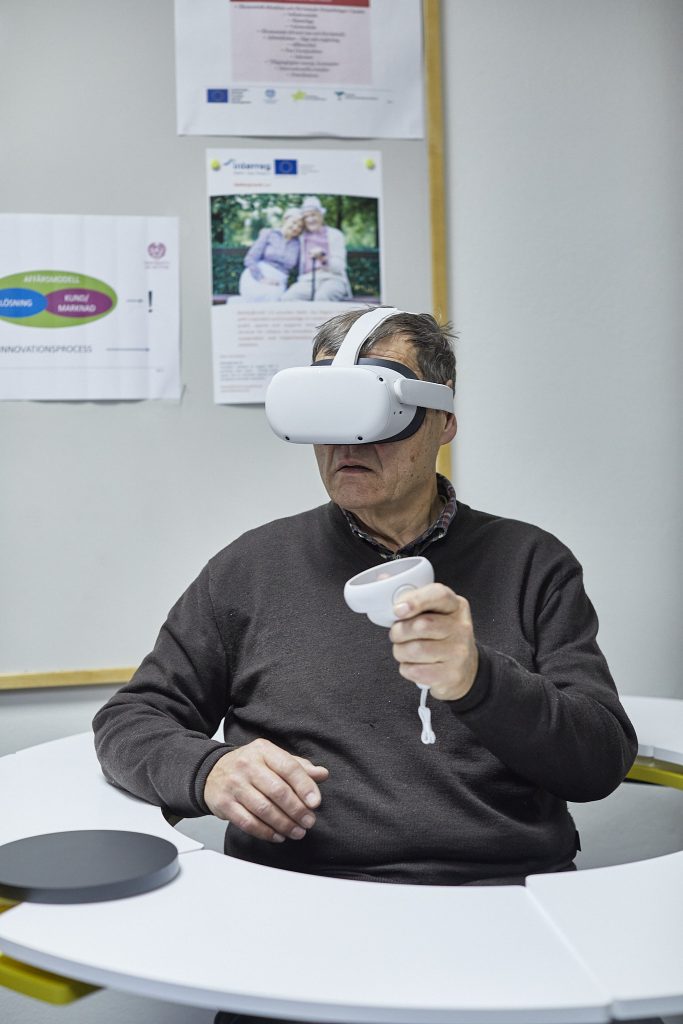
Senior testing VR table and VR content
A number of other smart solutions like smart tablecloth, adjustable kitchen sink, safety monitoring of water consumption and lighting conditions and much more were also presented to seniors and participants of the final event.
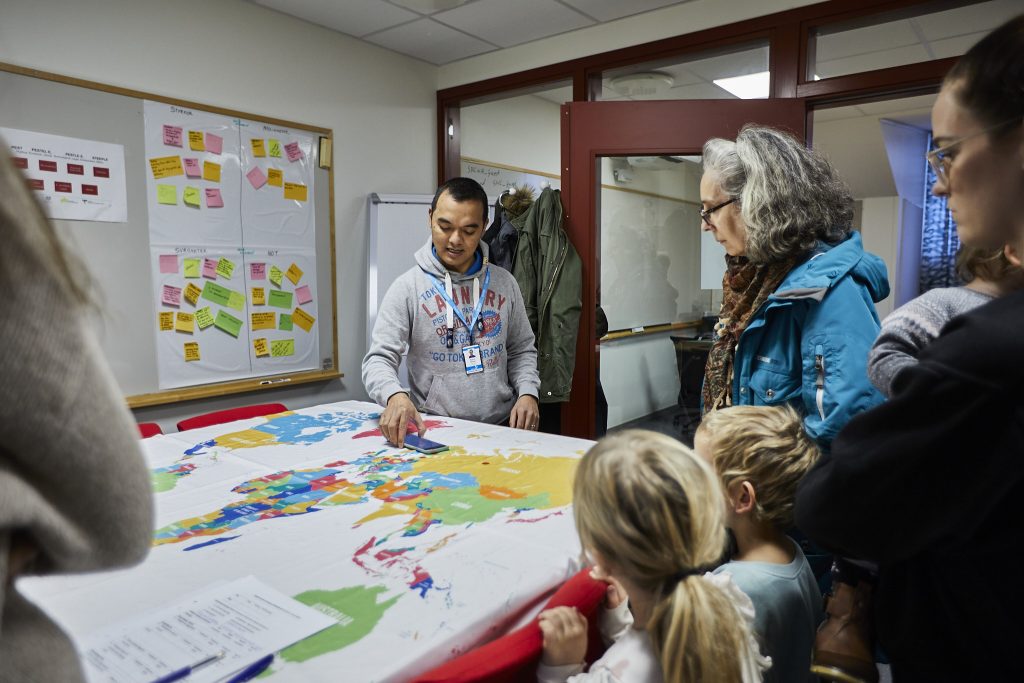
Ryann Deloso (Satakunta University of Applied Sciences) presenting the prototype of smart tablecloth
The third day of the BaltSe@nioR 2.0 final event was dedicated to summarize our achievements, meet up with seniors, companies and project partners from all the Baltic Sea region countries, discuss the results and make plans for the future activities. The conference started with the welcoming speech of the Pro-Vice chancellor at University of Skövde Lena Mårtensson. Next the keynote speaker Barbro Westerholm took the floor to inspire and motivate the audience to pay much focus to the issue of the demographic change and the response we as experts, would provide to it.
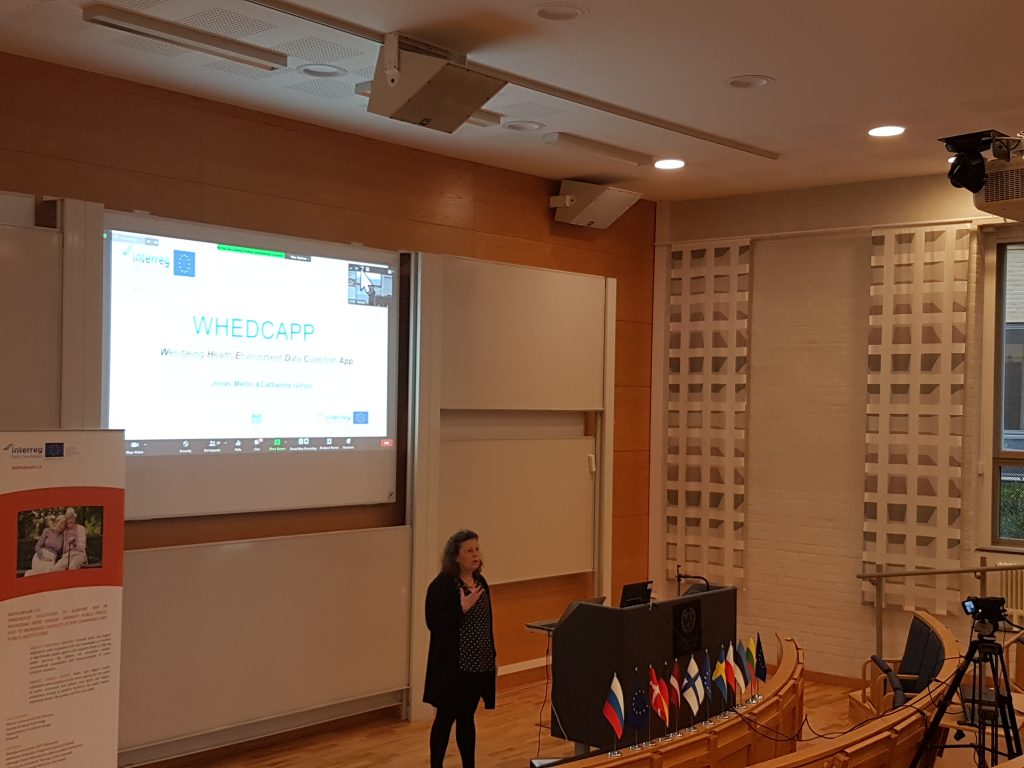
Catharina Gillsjö (University of Skövde) presenting the prototype of WHEDCAPP application
In the following parts of the conference all the project partners presented briefly the main and most important achievements of the project activities including: the development of the Virtual Library, the ebook being the guide to senior-friendly public spaces in the Baltic Sea region, the template of Social Business Model considering not only the profit but also environmental and social factors in the development of the business activity, the networking activities facilitating the cooperation between those who are interested in age-friendly furniture and public spaces. There was also a time slot to showcase the pop-up and permanent age-friendly demo spaces we have created in Finland, Poland, Estonia, Lithuania and Sweden, as well as a wide range of various smart prototypes developed within our transnational cooperation.
